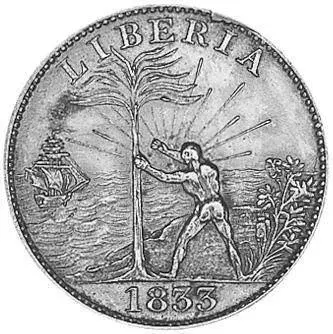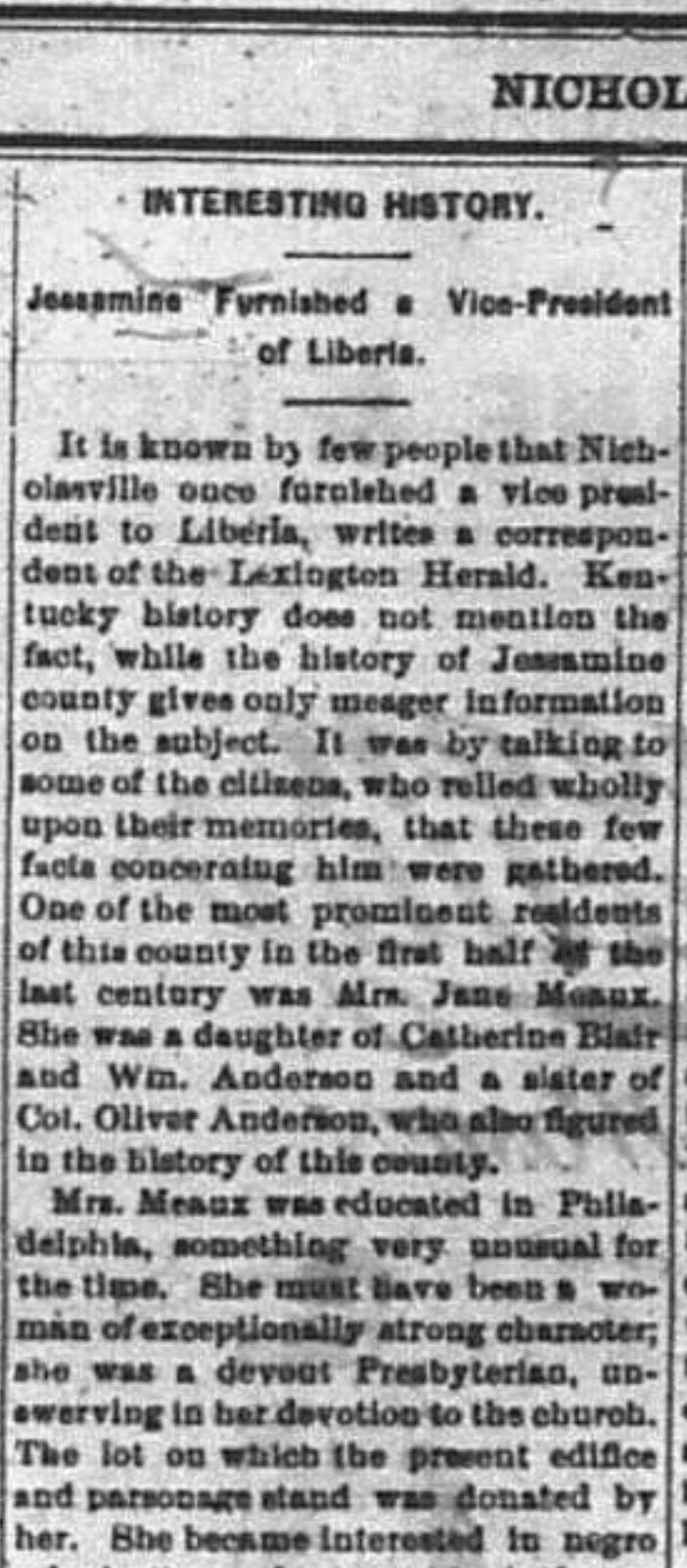3. Visit Jane Meaux's house.
Jane Meaux’s house (103 N. 1st St.) is located across the street from Jessamine County’s stately courthouse. The house is now used as the administrative offices for Catalyst Church, the big church house next door.

Jane Meaux was born in 1780 in Virginia to a Revolutionary War veteran. She was sent away to be educated in Philadelphia, an unusual move for the time. After marrying, she moved to Kentucky and had eleven children.
In 1837 she divorced her husband, a radical act for the day, one that was noted even by the Kentucky Legislature. In “An Act for the Benefit of John G. Meaux,” the legislature declared, “Be it enacted by the General Assembly of the Commonwealth of Kentucky, That John G. Meaux be, and he is hereby divorced from his wife, Jane Meaux, and restored to all the rights and privileges of an unmarried man. –Approved January 19, 1837.” Unfortunately, we don’t know why they divorced.
Thereafter, she ran her own household and became a woman of “large wealth.” With that wealth she gave land to Nicholasville Presbyterian Church to build a church house next to her own house. One of her pastors was Thomas Woodrow, the grandfather of President Woodrow Wilson.
She also purchased fifteen or so enslaved people. All of them were to be freed and given $100 if (and it was a big if) they agreed to emigrate to Libera in West Africa. Those who refused were to remain enslaved after her death.
In this scheme of African colonization, which was highly popular in the early nineteenth century, white Americans would raise money to send enslaved people on ships back to Africa. Between 1822 and the Civil War, more than 15,000 freed African Americans emigrated to Liberia. The territory declared independence in 1847. The United States did not recognize it until 1862.
Colonization was especially popular in Kentucky, and the state chapter of the American Colonization Society purchased a 40-square-mile tract of land along St. Paul’s River. They called the colony Kentucky in Africa, and they named the main town Clay-Ashland after Senator Henry Clay’s estate in Lexington.
Meaux’s investment in colonization stemmed from complex motivations. She wanted to evangelize Africans with the Christian gospel, and she hoped that the people she enslaved would be good missionaries. At the same time, like most boosters of colonization, she probably wanted to cleanse the United States of blackness. Even most white Americans uncomfortable with slavery still wanted to keep the nation white.
African Americans themselves were overwhelmingly opposed to colonization. In most cases, their families had lived in the United States for generations; they felt no more African than Americans felt British.
The most promising of Meaux’s human property was her “young negro servant” named James Priest. Described as a dark-skinned mulatto who was “honest and trustworthy,” Priest attended a white school in Jessamine County. In a highly unusual act, Meaux paid for it. He performed so well that Meaux tried to enroll him at Centre College, which refused to admit him. He ended up going to college at McCormick Theological Seminary in New Albany, Indiana, to prepare to be a Presbyterian minister.
As promised, Meaux emancipated Priest when he left for Libera. He ended up serving for twenty-seven years as the pastor of the Presbyterian Church at Sinoe, located 150 miles down the Atlantic coast from the capital city of Monrovia. Upon his death in 1883, the Presbyterian Church eulogized his “forty years of exemplary Christian life.” He returned to Nicholasville once to give “the first ever lecture on the African mission field ever heard in Central Kentucky.”
Priest also enjoyed a meteoric rise in politics. In the 1860s he became president of the Senate and vice-president of Liberia. At the time of his death in 1883, he was associate justice of the Liberian Supreme Court.
While Priest prospered in Liberia, Meaux’s other emancipated slaves did not. It was said that they “became dissatisfied and longed to return to Kentucky.” They had no money, however, to return.









